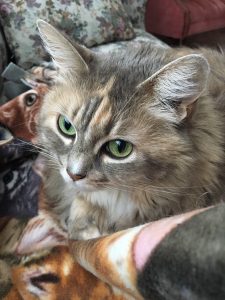 As you know, we lost a precious fur-baby this year. We have Olivia now and we love her dearly. She’s such a bright spot in our life. But how I miss Lily. Yes, still. There’s no duplicating or replacing a cat.
As you know, we lost a precious fur-baby this year. We have Olivia now and we love her dearly. She’s such a bright spot in our life. But how I miss Lily. Yes, still. There’s no duplicating or replacing a cat.
I can’t think of Katy, my sweet Himalayan, without 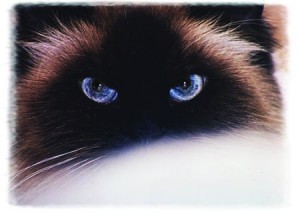 feeling emotional, and she died sixteen years ago at the age of 18. We can love again, but a new cat can never take the place of any cat. They come with very different personalities and traits. We love them, but in a new way.
feeling emotional, and she died sixteen years ago at the age of 18. We can love again, but a new cat can never take the place of any cat. They come with very different personalities and traits. We love them, but in a new way.
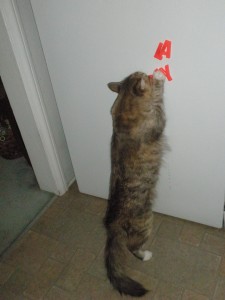
Yes, we grieve, but is it the same for cats? Do they experience loss similarly to the way we do? We do know that cats don’t like change. They will often react in some unexpected way to your schedule change, your absence, the addition of a roommate, or a loss. They react when we move furniture—especially their furniture or toys. There’s almost always an adjustment period for cats when there’s been a change and this is true also when a cat or a human suddenly disappears from the home environment.
Many of you reading this can attest to the fact that the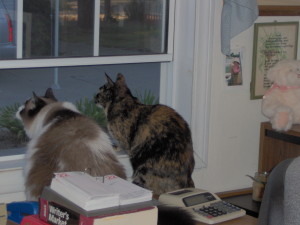 loss of a pet does not go unnoticed by remaining pets—in particular cats. Yes, cats can and do grieve. When Lily passed, our remaining girl, 16-year-old Sophie reacted. At first, she stayed in solitude a lot and ate very little. Then she’d walk the hallway yowling. She’d check every room one by one as if she was looking for
loss of a pet does not go unnoticed by remaining pets—in particular cats. Yes, cats can and do grieve. When Lily passed, our remaining girl, 16-year-old Sophie reacted. At first, she stayed in solitude a lot and ate very little. Then she’d walk the hallway yowling. She’d check every room one by one as if she was looking for 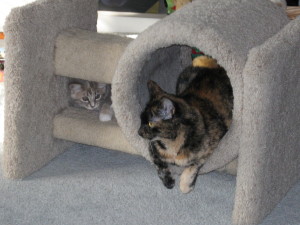 and calling for Lily. Eventually she stopped eating, began licking her fur out in one spot—over-grooming—and she became very sick. It took a lot of meds and attention and consideration and urging to bring her back to health.
and calling for Lily. Eventually she stopped eating, began licking her fur out in one spot—over-grooming—and she became very sick. It took a lot of meds and attention and consideration and urging to bring her back to health.
I’m not sure that we did the right thing when we brought a kitten in when we did. Sophie actually got worse at that point. While she seemed interested in the kitten, she
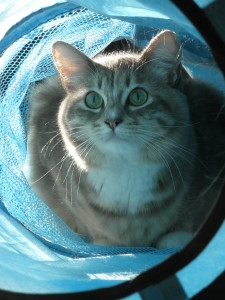
regressed health-wise at first before getting better.
Do cats grieve? I’m completely convinced that they do and it’s a sad thing to watch. Here are a few sites with great information on the topic. It’s important that we understand and know how to help.
FYI, Sophie is now the picture of health for a 16-year-old cat. She’s eating well, her fur is back to normal—it was awful—coarse. And she is displaying her normal behavior. Big sigh of relief.





